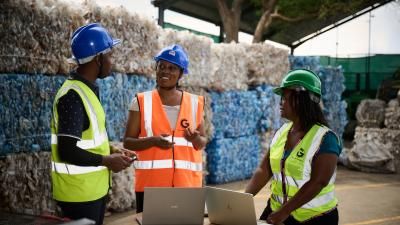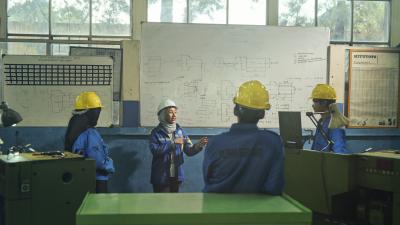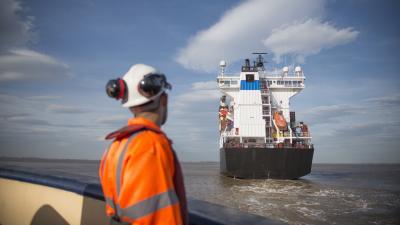
Engineering X Skills for Safety programme
Focused on enabling the delivery of skills for safer engineering through education, advocacy, community building and industry partnerships.
Discover how Lloyd's Register Foundation is increasing the number and diversity of skilled engineers, especially in parts of the world where they're most needed.
Estimated number of scientists and engineers in Europe (2018).

Occupational accident data indicates that the safety gap between developing economies and the developed world is increasing, and emerging technologies, unless adopted safely, could exacerbate this gap rather than close it. To meet the demands of urbanisation, industrialisation and a rapidly growing population, we need a new approach to engineering education that has diversity, equity and inclusion at its heart.
Lloyd’s Register Foundation is building a global evidence base that informs us where engineering capacity is most lacking, helping identify which interventions are most effective to address safety challenges in their local context. We champion skills initiatives that will support a safe, equitable and just transition to zero-carbon fuels, and remove barriers for new talent and underrepresented demographics to enter the engineering workforce, particularly in the Global South.
Explore our work in this area below.
Live skilled people for safer engineering grants.
Countries receiving funding in this area.
Current value of grant portfolio in this area.
This page was published on
This page is approximately a 4 minute read
Explore our new documentary series, highlighting the work of law practitioners improving seafarers’ working conditions and maritime safety in Kenya and beyond.
This page was published on
This page is approximately a 4 minute read
The Nautical Institute is pleased to announce the appointment of Captain Ann Pletschke CMMar CMarTech FNI as Project Manager for the STEER Project, delivered in collaboration with Lloyd’s Register Foundation.
This page was published on
This page is approximately a 6 minute read
From Africa Maritime Day in Antwerp comes a rallying cry: move beyond recognition and act for seafarers, livelihoods, and Africa’s maritime future. Renis Ojwala, from the World Maritime University, tells us more.
This page was published on
This page is approximately a 3 minute read
The final two fellows in our three-year partnership, Mochamad Gizza Gaeta Nahumariri and Estri Wahyuning Asih, have started their MSc in Maritime Affairs at the World Maritime University (WMU) in Malmo, Sweden.
Infrastructure is evolving rapidly, bringing new safety challenges and increasing the need for safer decision‑making across essential systems. Our work helps ensure more resilient infrastructure for the long term by supporting better insight, stronger capability, and safer ways of working.
Tim Slingsby Director of Skills and Education
We will support safety leadership, identify safety skills needs and promote more capacity and capability for safer engineering where it is most needed.


